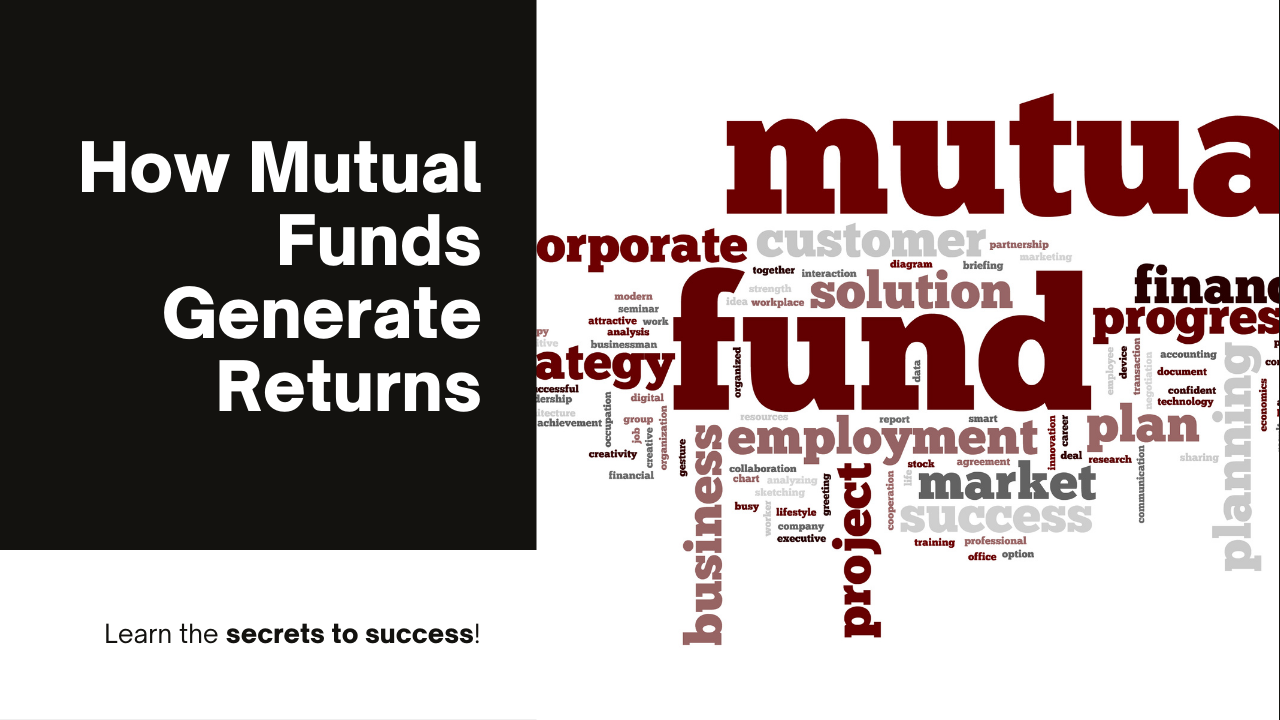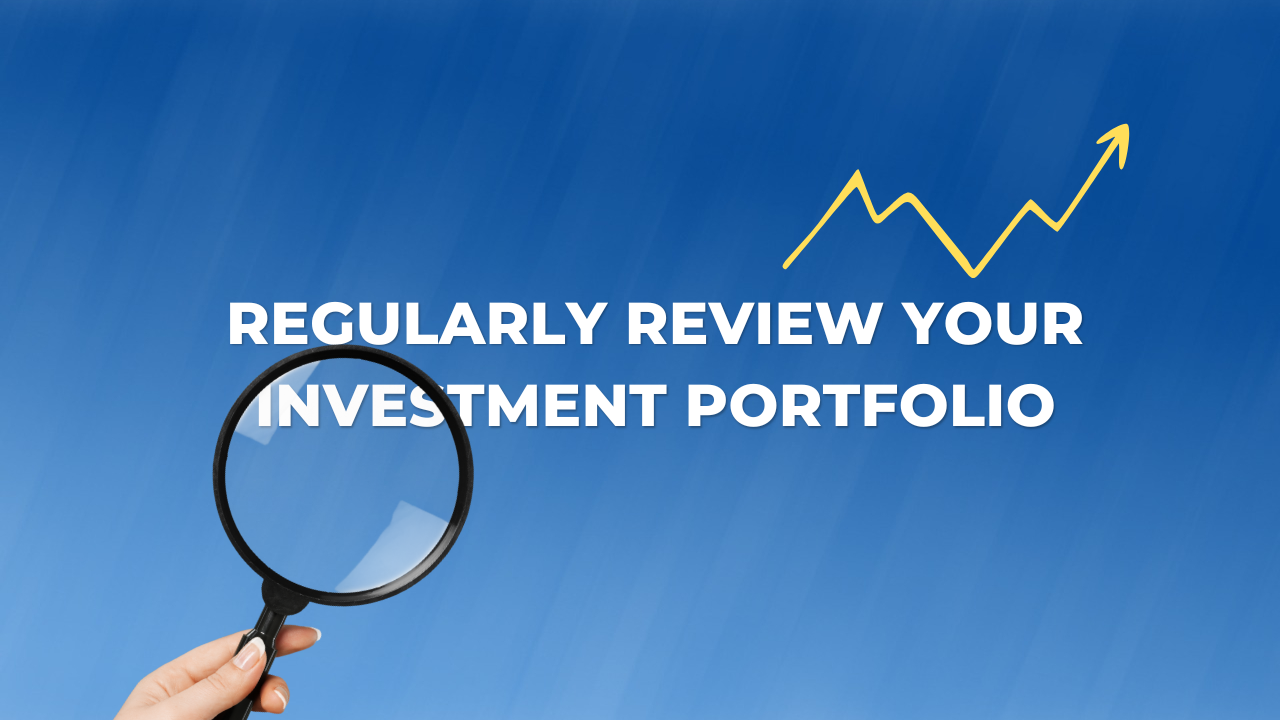Continuously Educate Yourself About Market Trends and Investment Options
Continuously Educate Yourself About Market Trends and Investment Options
The financial geography is dynamic, with constant changes in market trends, investment opportunities, and regulations. To make informed investment decisions, it's required to stay updated and continuously educate yourself.
Why Continuous Education is Crucial for Investors
- Keeps You Informed About Market Trends:
- Financial markets are influenced by various factors like economic policies, geopolitical events, interest rates, and technological advancements. Staying informed about market trends ensures you're aware of shifts that could affect your investments.
- Identifies New Investment Opportunities:
- New investment options, like emerging asset classes (cryptocurrency, ESG funds, etc.), continually appear. Educating yourself helps you explore these opportunities and assess whether they align with your financial goals and risk tolerance.
- Understanding market cycles and volatility allows you to react calmly and make sound decisions, rather than panic during market dips or FOMO (fear of missing out) during bull runs.
- Knowledge empowers you to evaluate investment options more effectively, compare products, and understand associated risks, thus improving your decision-making process.
- Tax laws and investment regulations are constantly evolving. Being educated on these changes ensures compliance and allows you to optimize your portfolio from a tax and legal perspective.
- With continuous learning, you become more confident in your investment choices, reducing emotional decision-making and enhancing long-term financial discipline.
- Helps Manage Risk and Volatility:
- Enhances Financial Decision-Making:
- Adapts to Changing Tax and Regulatory Environments:
- Builds Confidence:
How to Continuously Educate Yourself About Investments
1. Follow Trusted Financial News Sources
- Stay updated on global and local financial news. Subscribe to reputable news outlets, such as The Wall Street Journal, Bloomberg, CNBC, and financial sections of major newspapers.
- Why?
- This helps you stay aware of current economic conditions, market trends, and investment-related news that could affect your portfolio.
2. Read Investment Books and Reports
- Read books by respected financial authors like Benjamin Graham ("The Intelligent Investor"), Peter Lynch ("One Up On Wall Street"), and John Bogle ("The Little Book of Common Sense Investing").
- Why?
- Books offer deep insights into investment principles, strategies, and the psychology of investing, which can strengthen your knowledge base.
3. Take Online Courses and Webinars
- There are many free and paid online courses on platforms like Coursera, Udemy, edX, and LinkedIn Learning that teach everything from basic investing to advanced financial analysis.
- Why?
- Structured learning allows you to develop a solid foundation in investing principles and explore specific areas of interest (e.g., stock market investing, real estate, or crypto).
4. Attend Financial Seminars and Workshops
- Participate in financial seminars, webinars, or workshops, whether in-person or online. Many investment platforms, banks, or educational institutions host these events.
- Why?
- These events provide opportunities to learn from financial experts, ask questions, and network with other investors, enhancing your practical understanding of investment strategies.
5. Subscribe to Investment Research Platforms
- Platforms like Morningstar, The Motley Fool, Seeking Alpha, and Value Research provide detailed research reports, market analysis, and recommendations.
- Why?
- These resources offer expert analysis on mutual funds, stocks, bonds, and ETFs, helping you stay informed on the latest developments and options.
6. Learn from Experienced Investors and Financial Advisors
- Surround yourself with seasoned investors or financial advisors who can offer personalized advice and share their experiences.
- Why?
- Learning from the successes and mistakes of others can help you avoid common pitfalls and refine your investment strategy.
7. Join Investor Communities and Forums
- Engage with online communities like Reddit’s r/investing, Bogleheads, and StockTwits to exchange ideas, opinions, and market insights with fellow investors.
- Why?
- Community discussions can expose you to new perspectives, and you may learn about strategies or opportunities that you hadn't considered before.
8. Use Financial Apps and Tools
- Leverage apps like Yahoo Finance, Bloomberg, and TradingView to track market data, stocks, and portfolio performance.
- Why?
- These tools allow you to access real-time information, monitor market trends, and analyze potential investment opportunities from anywhere.
9. Monitor and Analyze Your Investments
- Regularly review your portfolio’s performance and rebalance it based on market conditions, changes in your risk tolerance, or life goals.
- Why?
- Ongoing analysis helps you stay informed about how your investments are performing, enabling you to make data-driven decisions.
Common Mistakes to Avoid While Educating Yourself
1. Relying on Unverified Information
- Always verify the credibility of the sources you follow. Misleading information or clickbait articles can result in poor decisions.
2. Overloading with Information
- While continuous learning is essential, too much information can lead to decision paralysis. Focus on quality sources and avoid overwhelming yourself with constant updates.
3. Focusing Only on Short-Term Trends
- Don't get caught up in the hype of short-term market movements. While market trends are important, it's equally crucial to understand long-term strategies for sustainable wealth-building.
4. Ignoring Risk Management
- Education should also include learning about risk management techniques. Avoid making overly aggressive investments without understanding the potential downside.
FAQs on Continuous Education for Investors
1. How often should I educate myself about the markets?
- Education is an ongoing process. Set aside time regularly—whether it's reading a financial article every day or taking a course once a year. The key is consistency.
2. Can I rely on social media or forums for investment advice?
- While communities can offer insights, always cross-check advice from credible experts or financial advisors. Be cautious of unverified information.
3. Do I need a professional financial advisor to educate myself?
- While professional advisors can provide personalized advice, you can still educate yourself through self-study, online resources, and community discussions. A mix of both is ideal.
4. What should I focus on when learning about investments?
- Start with the basics of asset classes, risk management, and financial goals. Then, as you grow in knowledge, delve into specific strategies such as value investing, technical analysis, or retirement planning.
5. How do I stay updated with changing tax and regulatory laws?
- Subscribe to newsletters, follow tax and financial news outlets, or consult with a tax advisor to stay informed about any changes that could affect your investments.
Team Investor Sarthi’s Key Takeaways on Continuous Education
- “Knowledge is Power: Stay informed to make sound investment decisions and navigate market complexities.”**
- “Invest in Learning: Ongoing education keeps you adaptable in a constantly changing market.”**
- “Quality Over Quantity: Focus on credible sources and actionable insights to avoid confusion and overwhelm.”**
- “Learn from Others: Seek guidance from experienced investors, advisors, and trusted communities to enhance your understanding.”**
- “Adapt and Evolve: Regularly review your financial goals and adjust your strategies based on the latest market trends and opportunities.”**
By continuously educating yourself about market trends and investment options, you equip yourself to make informed, confident decisions that align with your long-term financial goals. For personalized guidance and advice, reach out to Team Investor Sarthi!





















